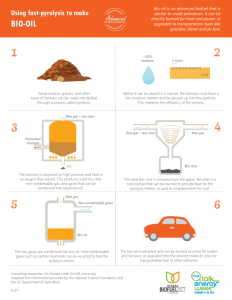Panelists discussed the “E15 Revolution” during the Growth Energy Leadership Conference held in Orlando this week. The retailer discussion focused on their efforts to help grow the consumer availability of E15 across the country.
 Panelists included Jim Pirolli, VP Fuels for Kum-N-Go; Mike Lorenz, Executive VP of Petroleum Supply; and Todd Garner, CEO of Protec Fuels.
Panelists included Jim Pirolli, VP Fuels for Kum-N-Go; Mike Lorenz, Executive VP of Petroleum Supply; and Todd Garner, CEO of Protec Fuels.
When discussing the changing marketplace, Lorenz commented that initial sales have exceeded expectations, even before kicking off a marketing campaign around E15. “The consumers are finding it on their own, and sales are increasing.” Pirolli seconded this statement by adding, “When it comes to consumer choice, they’re going to go with a higher performance, better value product.”
To learn more about how retailers are marketing E15, listen to Chuck Zimmerman’s interview with Protec’s Todd Garner, who he saw on a similar panel at the National Ethanol Conference the week before: Interview with Todd Garner, Protec
Another interesting panel discussion took place around “Ethanol on the World Stage”. The discussion focused on the important role that ethanol plays in the global marketplace and the need to take advantage of every opportunity to expand ethanol utilization worldwide. Panelists discussed the importance of trade missions to identify new markets and expand existing opportunities. Also discussed were increased opportunities to export dried distillers grains (DDGs).
The panel was moderated by Ray Defenbaugh, CEO & Chairman of Big River Resources, LLC. Panelists included Paul Trupo, Director of the USDA FAS Global Policy Analysis Division; Joel Williams, Manager of Ethanol Trading at ADM; Mark Marquis, CEO of Marquis Energy, LLC; Amit Sachdev, South Asia Representative (India Bangladesh and Sri Lanka) at the U.S. Grains Council; and Junyang Jiang, Deputy Director of the U.S. Grains Council China World Office.
During the discussion, Ray Defenbaugh stressed the importance of the partnership with the U.S Grains Council, as it is helping create new opportunities across the globe for exports. During the panel, it was announced by Mark Marquis, a board member of Growth Energy, that Growth Energy has set a goal to export at least 2 billion gallons of fuel ethanol by 2022, calling the program, “At Least 2 by 22.”











